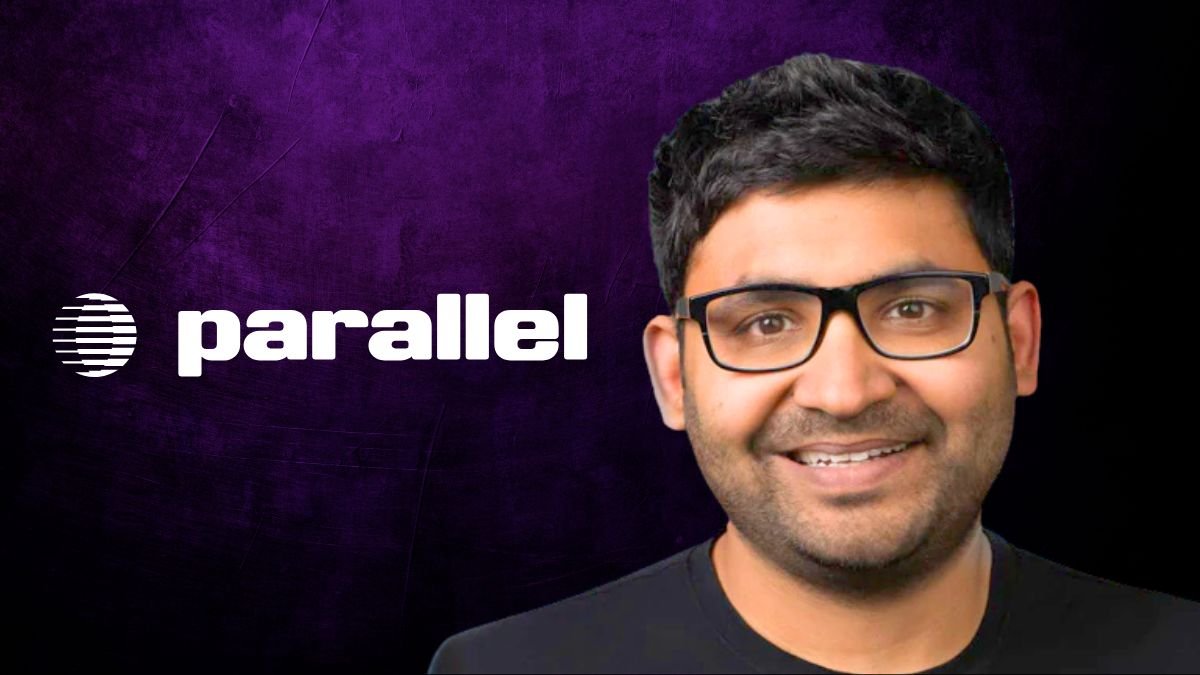In 2023, parag agrawal founded Parallel Web Systems, a startup born in Silicon Valley with early work sketched in Palo Alto coffee shops. The company aims to build a web platform that helps AI agents gather, verify, and organize public information in real time.
This piece introduces how agrawal launches a product focused on turning raw web data into trusted answers. The goal is clear: speed and accuracy so applications can act on reliable intelligence without delay.
The timing matters. As demand for generative AI rose, many agents stalled on messy sources. This platform targets that bottleneck by delivering verified results fast, enabling apps to perform tasks on behalf of users with higher confidence.
Read on to learn about funding, team moves, technology choices, benchmarks, APIs, and examples of real-world use. This introduction sets expectations for a company that moved quickly from concept to product to tackle web information at scale.
Key facts at a glance: what Parallel is and why it matters
This section highlights key features that let agents access and vet public web information fast. The offering gives AI applications real-time access to the public web, verifies findings, and packages results into clear, actionable answers.
The system runs eight distinct research engines tuned for different needs, from rapid under-a-minute outputs to deeper half-hour investigations. That range lets teams match tasks and models to the right speed and depth.
Accuracy is central: consistent verification reduces hallucinations and fills gaps that generic models often miss. Agents gain reliable sources and repeated checks, improving outcomes when completing complex computer tasks for people.
The platform operationalizes web research so applications that must use web data continuously can do so repeatably and robustly. Real-time delivery preserves responsiveness while still applying verification to what agents return.
Funding, team, and traction behind Parallel Web Systems
Strong seed capital and a small, focused staff in Palo Alto powered the next phase of growth. The backing and the local talent pool helped the company move from prototype to production quickly.
Backers and capital
The startup secured $30 million in funding from notable firms, including Khosla Ventures, First Round Capital, and Index Ventures. Vinod Khosla is named among the earliest backers, which added credibility and investor momentum.
Building in Palo Alto
Work began in local coffee shops and grew into a 25-person team based in Palo Alto. Proximity to Silicon Valley provides access to engineers, research partners, and venture networks that speed hiring and product partnerships.
Early adopters and scale
“some of the fastest-growing AI companies”
Early customers include fast-scaling companies, and the system now handles millions of research tasks per day. That operational load signals real-world reliability and gives the company room to iterate on infrastructure and features.
How Parallel works: real-time web research, verification, and delivery
The system layers fast lookups with deep investigations to serve live applications. It runs eight distinct research engines that map speed tiers to task complexity. The quickest engine returns results in under a minute, while the Ultra8x engine spends roughly 30 minutes on high-detail questions.
Eight engines and task tuning
Teams pick an engine based on latency needs and depth. Short searches use low-cost compute; deep research routes to Ultra8x. This design helps agents optimize for both responsiveness and thoroughness.
Verification, benchmarks, and accuracy
A verification layer cross-checks sources to raise accuracy without blocking real-time flows. Company benchmarks report Ultra8x beating GPT-5 by over 10% on BrowseComp and DeepResearch Bench and outperforming humans on deep web research tests.
Developer access and use cases
Developers get three APIs, including a low-latency option for chatbots that need verified web findings. Practical uses include coding assistants pulling snippets from GitHub, retailers tracking product catalogs, and market analysts turning reviews into spreadsheet-ready summaries.
The platform ties search and retrieval to structured delivery tools, letting applications plug results into workflows with little friction. Underlying systems and infrastructure balance throughput and depth so agents meet target performance for varied tasks.
Parag Agrawal launches Parallel amid an AI agents push
Following leadership shifts at a high-profile tech firm, he redirected his expertise into a startup that tackles real-time web research. He had served as Twitter’s CTO under Jack Dorsey and then became twitter ceo in 2021. That period included the legal battle over Elon Musk’s $44 billion acquisition and his eventual dismissal.
From Twitter to a new AI chapter
Rather than pause, the former ceo moved straight into building an AI startup. His machine learning systems background and executive experience shaped a clear product focus: turn messy web data into verified, actionable intelligence.
The agents future: many task-specific helpers on the web
He argues the next phase of productivity will rely on dozens of specialized agents acting for users online. The company’s direction centers on trust, speed, and verification so those helpers work reliably in production.
“Many future workflows will rely on numerous task-specific agents acting on behalf of users online.”
Leveraging a Silicon Valley network and early venture backing, the team hired quickly to move from prototype to scale. In this moment in time, the company aims to make agent-driven workflows dependable for real-world use.
Conclusion
The story closes on a clear bet: a new startup aims to make web research fast, verified, and production-ready for AI agents. The effort centers on speed, accuracy, and verified delivery so agents can act for humans with more confidence.
Backed by Khosla Ventures, First Round Capital, and Index Ventures, the Palo Alto team built systems that claim benchmark leads over leading models and humans on deep web research.
Developers can tap APIs to add search and verified web results to coding assistants, retail monitors, and market tools. The company now handles millions of research tasks daily, signaling demand from fast-growing companies.
In short, the ceo parag agrawal new startup stakes a claim: many agents will use web sources to deliver timely intelligence, and this company aims to be the research layer they rely on.
